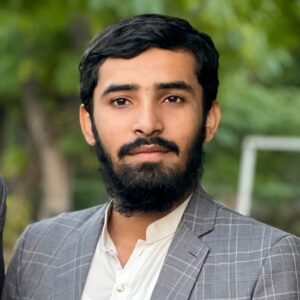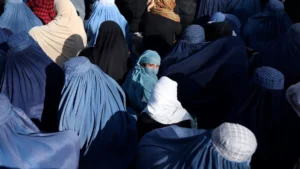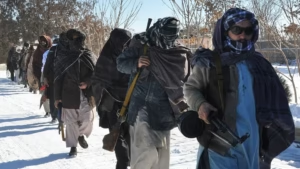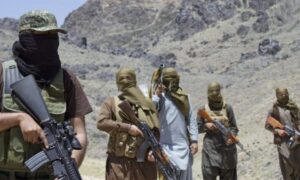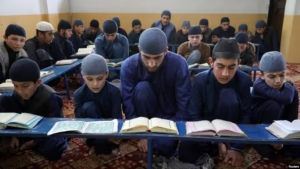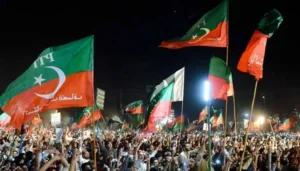Pakistan delivered a powerful statement at the United Nations Security Council, challenging global double standards in counterterrorism efforts and highlighting its massive sacrifices in the fight against extremism. Ambassador Asim Iftikhar Ahmad’s address on August 20, 2025, during the Security Council’s briefing on Daesh threats, marked a significant diplomatic intervention that called attention to biased approaches undermining international peace efforts.
Pakistan’s Unmatched Sacrifices in the Global War on Terror
The Pakistani envoy emphasized his country’s extraordinary contributions to global counterterrorism, stating that “Few nations have done more for the success of global counterterrorism efforts. Fewer still have bled more in this fight”. Pakistan has endured devastating losses, with over 80,000 citizens losing their lives and the country suffering hundreds of billions of dollars in economic damage over two decades of fighting terrorism.
These sacrifices position Pakistan as one of the world’s frontline states against terrorism, having played a pivotal role in decimating Al-Qaeda while continuing to combat Daesh and its regional affiliates, including the Tehrik-e-Taliban Pakistan (TTP), Balochistan Liberation Army (BLA), and Majid Brigade.
The ambassador highlighted recent tragic incidents to underscore ongoing threats, including the hijacking of the Jaffar Express in March 2025 that killed 31 passengers and the terrorist attack on a school bus in Khuzdar in May that claimed 10 lives, including eight children. “These are not just numbers. These are stolen futures,” he declared, emphasizing the human cost of terrorism.
Afghanistan as a Source of Regional Terror Threats
Ambassador Ahmad identified terrorism emanating from Afghanistan as “the single most potent threat” to regional and global security. He warned that terrorist groups are exploiting ungoverned spaces in Afghanistan to regroup and collaborate, creating grave and immediate dangers for Pakistan. The TTP, with nearly 6,000 fighters operating from Afghan soil, remains the largest UN-designated terrorist group threatening Pakistan’s security. The Pakistani representative provided credible evidence of collaboration between the TTP, BLA, and Majid Brigade, including the sharing of terrorist training camps to target Pakistan’s strategic infrastructure, economic projects, and civilians.
Accusations Against India’s State-Sponsored Terrorism
In a significant diplomatic escalation, Pakistan accused India of engaging in state-sponsored terrorism, including extraterritorial assassinations and sovereignty violations. Ambassador Ahmad specifically condemned India’s attack on May 6-7, 2025, which “deliberately and indiscriminately targeted the civilian population and infrastructure, resulting in the martyrdom of 54 innocent Pakistani nationals, including 15 children, some of them infants, and 13 women.”.
“When state terrorism masquerades as counter-terrorism, international peace is often the first casualty,” the envoy stated, urging the Security Council not to look away from such actions. He emphasized that occupied territories like Indian-administered Kashmir and Palestine represent stark examples where “collective punishments against civilian populations, widespread grave violations of human rights, forced demographic changes and fabricated counter-terrorism narratives” are deployed to sustain illegal occupations.
Challenging Discriminatory UN Terror Lists
Perhaps most controversially, Pakistan raised serious concerns about bias in UN counterterrorism frameworks. Ambassador Ahmad pointed out the glaring discrimination in Security Council terrorism lists, stating, “It is not understandable, and is indeed unacceptable, that every name on the Security Council’s terrorism lists is Muslim, while terrorists and violent extremists elsewhere escape scrutiny”.
He emphasized that “There is no non-Muslim in the lists. This must change,” highlighting the global rise of right-wing, extremist, and fascist movements that lead to terrorist violence yet face different treatment from international bodies. This “strong inclination to see acts by non-Muslims not as terrorism, but often described just as violent crime” represents a dangerous double standard.
Digital Terrorism and Modern Challenges
Beyond traditional threats, Pakistan warned about the evolving digital dimension of terrorism. Ambassador Ahmad cautioned that terrorist groups increasingly exploit “social media, ICTs, and artificial intelligence to radicalize, recruit, and glorify violence”. He called for enhanced international cooperation “from Interpol to national law enforcement, to choke off the digital arteries of terrorist networks.”.
Five-Point Reform Agenda
Pakistan presented a comprehensive reform agenda, including addressing root causes of terrorism through prevention strategies, ending state terrorism disguised as counterterrorism, distinguishing between terrorism and legitimate self-determination struggles, reforming UN sanctions regimes to reflect emerging threats while ending Islamic stigmatization, and strengthening global regulation of digital tools misused by terrorists.
Ambassador Ahmad concluded by emphasizing that “Effective counterterrorism requires joint action, firmly anchored in consensus-based principles and embedded in international law. We can only succeed by rejecting double standards and politically motivated agendas”. His statement represents Pakistan’s demand for fair treatment in global counterterrorism efforts while highlighting the complex security challenges facing the region.


